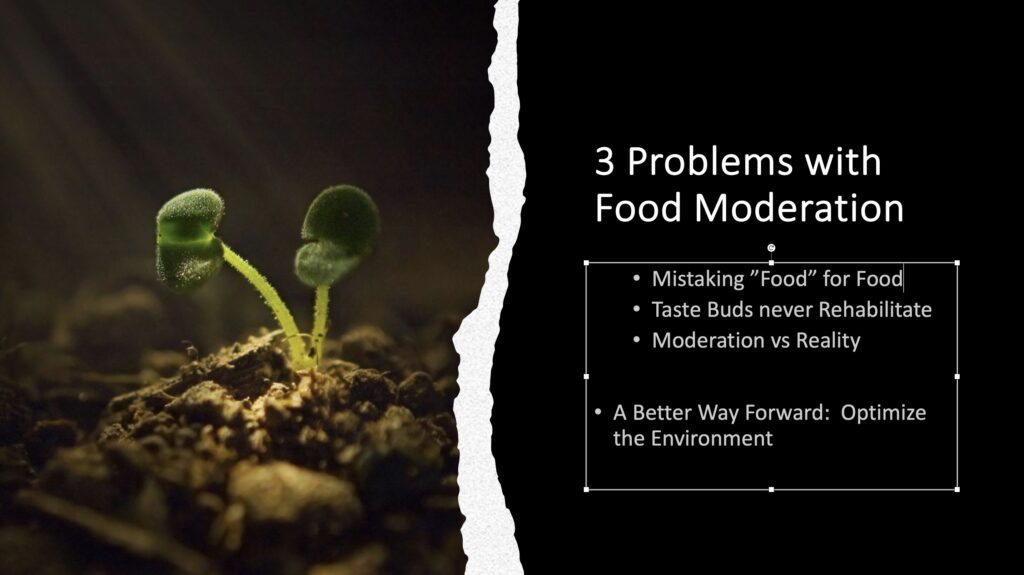Ok, you’ve convinced yourself that it’s okay to have ice cream, donuts, sodas, chips, chicken wings or any number of other “foods” you know is not healthy for you as long as it is done in moderation. In theory, I don’t necessarily have a problem with that. I am certainly not perfect in my own food choices. However, moderation is very frequently problematic. Why so? 3 Reasons
Mistaking “Food” for Food
I sometimes hear people say that food shouldn’t be labelled as good or bad. Rather, they contend, It is something we should enjoy in moderation. This line of reasoning overlooks a crucial distinction. It fails to differentiate actual food that comes to us from the Earth from highly processed “foods” that are churned out from a factory. Natural food, with rare exceptions, are inherently good for us. Our bodies evolved over the millennia is just such a way as to be able to digest these foods from nature that nourish our bodies. In contrast, highly processed foods – which today comprise a staggering 60% of the average American’s diet (and a whopping 70% of our kids’ diet) – can hardly be called “food” at all. To fail to understand that is to justify to ourselves that the SAD or Standard American Diet, is okay.
Taste Buds Never Rehabilitate
Second, by moderating, we often fail to ever get to the point of rehabilitating our taste buds. As I’ve said before (and demonstrated using google search), highly processed foods really do taste better than real food. They are made to be addictive and highly pleasurable. Just try offering a chocolate cake or ice cream versus any natural food of your choice to a little child. See which one they pick. I’m sure the results are predictable without having to run the experiment.
Many people considerate it moderation if you only get one dessert a day. The constant re-exposure practically ensures that they will never experience taste bud rehabilitation. Yes, research shows that by avoiding these tempting foods for about a month, we do lose much (though not all) of our craving for it.
Moderation vs Reality
In my experience, when I ask my patients how well they think they eat, the large majority say they eat mostly healthy. This reflects a study conducted by NPR in 2016. When asked, “How healthy would you consider your eating habits to be?” About 75 percent of respondents ranked their diets as good, very good or excellent. And yet, we know that 60-70% of our calories come from highly processed foods. Likewise, 73% of American’s are either overweight or obese, chronic medical problems are rising in prevalence as are costs. The fact is, most of us do not moderate and that leads to the sad state of our health. There is either a dissonance between our perception and reality or willful ignorance involved here.
A Better Way Forward: Optimize the Environment
If you live in the 21st century, you’ll have a hard time resisting all the temptations around us. Very few of us manage to get this right. When a few people are failing at something, you can possibly blame the person. When the vast majority of people are failing, there’s something wrong with the system. Indeed that is the case today.
Far better than relying on our willpower to resist temptations around us is to optimize our home environment (and ideally our work environment as well) by removing the temptations around us. That means specifically to at least rid the home of sweets, chips, and sodas. This is something we have the power to do as individuals.
I propose in Health in Flames, that we can go even further and optimize the conditions for healthy living for society as a whole.

